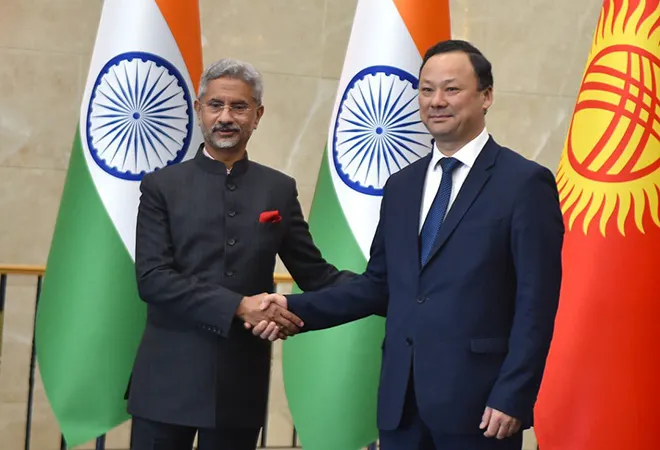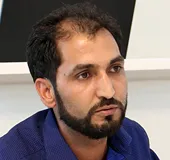The dramatic developments in Afghanistan have catalysed new geostrategic and geoeconomic concerns for the region. The evolving situation has also thrown up renewed challenges for India’s regional and bilateral ties with Central Asia and the Caucasus, prompting India to recalibrate its rules of engagement with the region.
External Affairs Minister S. Jaishankar was in the region earlier this month — his third within a of four months. In Kyrgyzstan, Mr. Jaishankar extended a credit line of $200 million for the support of development projects and signed an memorandum of understanding (MoU) on High-Impact Community Development Projects (HICDP). His next stop was the Kazakhstan capital, Nur Sultan, where he attended the 6th Foreign Ministers’ Conference on Interaction and Confidence-Building Measures in Asia (CICA).
At CICA, Mr. Jaishankar targeted China’s Belt and Road Initiative (BRI). Admonishing China’s methods in promoting the BRI, he said while greater connectivity was essential for the promotion of regional stability, it must not be pursued for parochial interests. He also confronted Pakistan for its support towards cross-border terrorism. Before reaching Armenia on October 13, Mr. Jaishankar met his counterparts from Russia, Uzbekistan and Turkmenistan to discuss regional cooperation.
India-Armenia ties
Mr. Jaishankar has become the first Indian External Affairs Minister to visit Armenia. The Minister and his Armenian counterpart, Ararat Mirzoyan, agreed to enhance trade and cultural exchanges to boost bilateral relations. During the visit, Mr. Jaishankar also supported efforts for a peaceful solution of the Nagorno-Karabakh conflict between Azerbaijan and Armenia under the Organization for Security and Cooperation in Europe’s (OSCE) Minsk group.
The Taliban re-establishing its supremacy over Afghanistan has also exposed the weaknesses of coalitions such as the Shanghai Cooperation Organization (SCO), created in response to the threats of terrorism that sprang from Afghanistan. However, the SCO has been used by most member countries for their own regional geostrategic and security interests, increasing the trust-deficit and divergence within the forum.
As the SCO failed to collectively respond to the Afghan crisis, the Central Asian leaders met in Turkmenistan in August to voice their concerns over the Afghan situation, and also discussed the presence of Central Asian terror groups within Afghanistan and along their borders.
After the breakup of the Soviet Union and the formation of the independent republics in Central Asia, India reset its ties with the strategically critical region. India provided financial aid to the region and established diplomatic relations. New Delhi signed the Strategic Partnership Agreements (SPA) with Kazakhstan, Tajikistan and Uzbekistan to stimulate defence cooperation and deepen trade relations. In 2012, New Delhi’s ‘Connect Central Asia’ policy aimed at furthering India’s political, economic, historical and cultural connections with the region. However, India’s efforts were stonewalled by Pakistan’s lack of willingness to allow India passage through its territory. China took advantage of the situation and unveiled the much-hyped BRI in Kazakhstan.
The growing geostrategic and security concerns regarding the BRI’s China-Pakistan Economic Corridor (CPEC) and its violation of India’s sovereignty forced New Delhi to fix its lethargic strategy. Soon after assuming office, Prime Minister Narendra Modi visited all the Central Asian countries in July 2015. Eventually, Central Asia became the link that placed Eurasia in New Delhi’s zone of interest. India signed MoUs with Iran in 2015 to develop the Chabahar port in the Sistan-Baluchistan province that was in the doldrums from 2003. Most of the Central Asian leaders view India’s Chabahar port as an opportunity to diversify their export markets and control China’s ambitions. China’s assertive approach led to rising social discontent on the ill-treatment of their ethnic brethren in neighbouring Xinjiang.
Central Asian countries have been keen to have India as a partner as they have sought to diversify their strategic ties. They have admitted New Delhi into the Ashgabat Agreement, allowing India access to connectivity networks to facilitate trade and commercial interactions with both Central Asia and Eurasia, and also access the natural resources of the region. Rising anti-Chinese sentiments within the region and security threats from the Taliban allow New Delhi and Central Asia to reimagine their engagement. India cannot afford to lose any time in recalibrating its regional engagements.
This commentary originally appeared in The Hindu.
The views expressed above belong to the author(s). ORF research and analyses now available on Telegram! Click here to access our curated content — blogs, longforms and interviews.




 PREV
PREV



